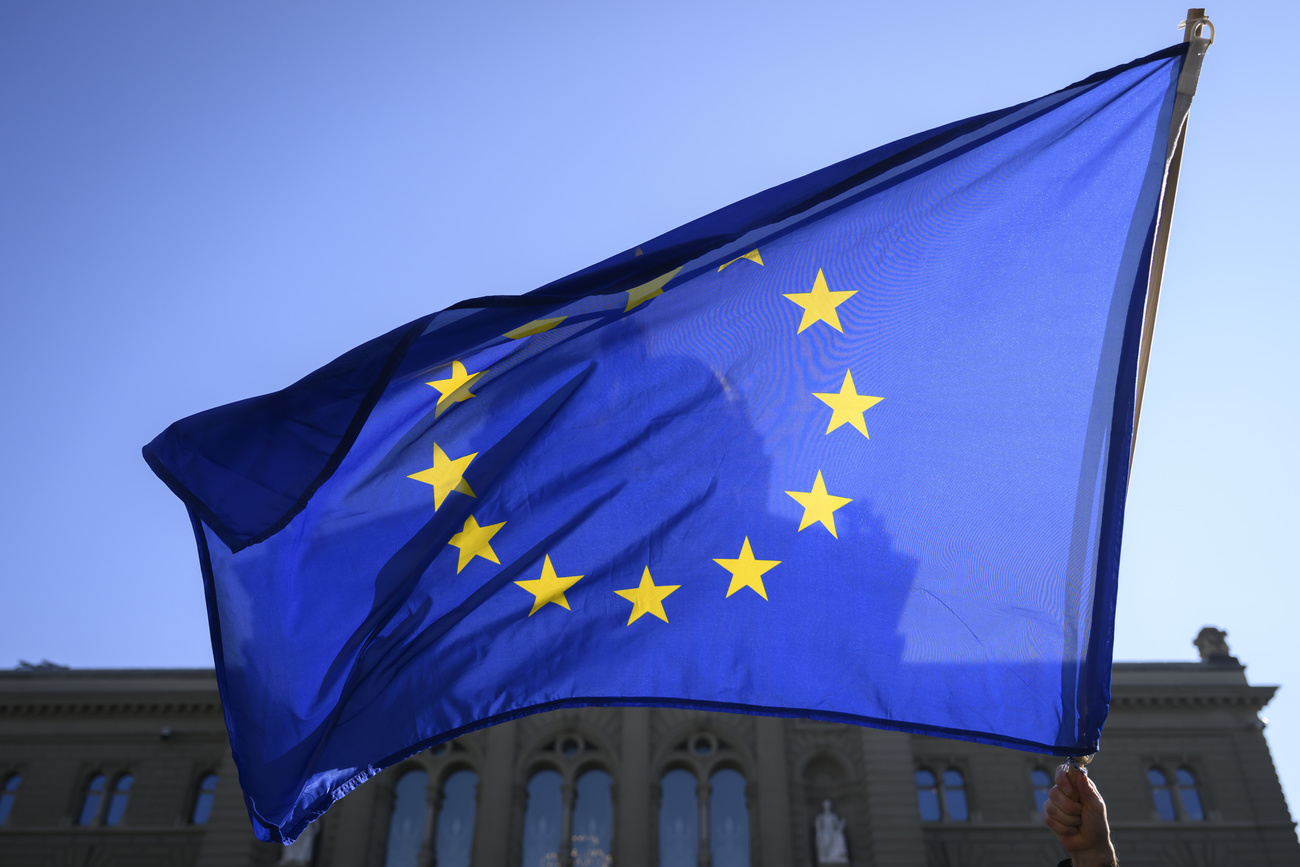
Switzerland and EU issue joint declaration to further cooperation

In a 13-point joint declaration, representatives from Switzerland and the European Union have stressed the importance of maintaining good and stable relations, for the time being on a bilateral basis.
There are no insurmountable political differences between Switzerland and the EU, they said at the Swiss-EU interparliamentary meeting on Friday.
The meeting in the northern Swiss town of Rapperswil-Jona resulted in a joint statement by the Swiss representative to the European Parliament, Benedikt Würth, and the chairman of the European Parliament’s permanent delegation for relations with Switzerland, Andreas Schwab.
They welcomed the exploratory talks that have been underway since March and hope that these will lead to “a common basis for the resumption of negotiations as soon as possible” (with a view to concluding an institutional framework agreement).
The declaration also stressed the importance of cooperation in the framework of European programmes such as Horizon Europe, Erasmus, Euratom and Digital Europe. Both parties advocate a two-pillar approach to resolving disputes: the European Court of Justice interprets and applies the common rights and obligations governing EU membership, while the Swiss Federal Court does the same with Swiss law.
Framework agreement
The representatives also agreed that Switzerland should reduce to five years the minimum period required to obtain a residence permit for citizens of the 13 countries that have joined the EU since 2004 (subject to other criteria such as integration or language skills).
Both parties agreed to intensify meetings between the Swiss government and European Commission with a view to restarting negotiations on an overarching framework agreement.
In 2021 Switzerland unilaterally broke off negotiations on a framework deal to replace the more than 120 bilateral accords which have regulated relations for the past decades. That led to a souring of relations between Bern and Brussels. Subsequent efforts to break the diplomatic deadlock have not succeeded.

In compliance with the JTI standards
More: SWI swissinfo.ch certified by the Journalism Trust Initiative





























You can find an overview of ongoing debates with our journalists here . Please join us!
If you want to start a conversation about a topic raised in this article or want to report factual errors, email us at english@swissinfo.ch.